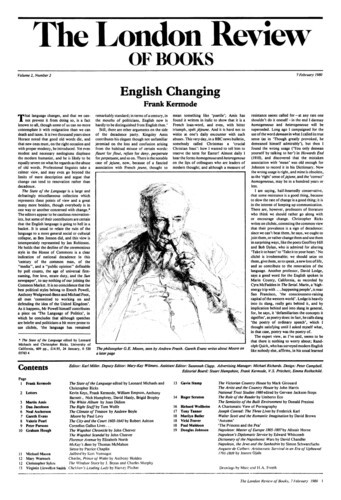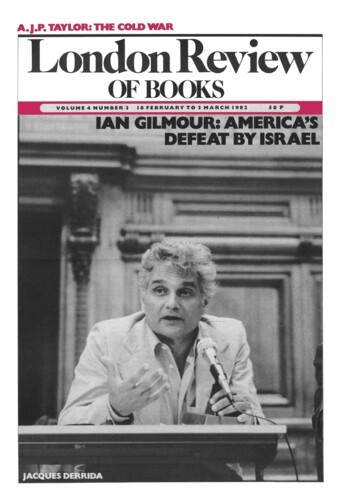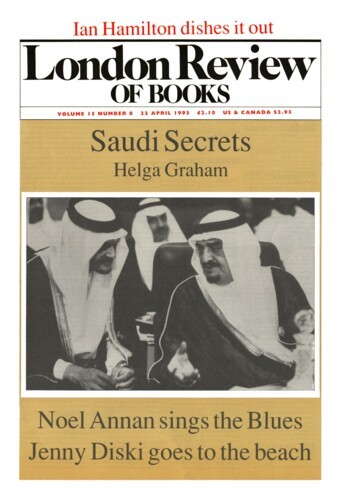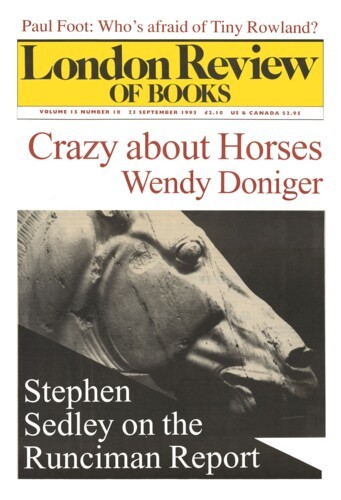Homage to Marginality
Tony Tanner, 7 February 1980
This book – which aims at monumentality and certainly achieves size – deserves to be examined with care. There has been no biography of Conrad since 1960, when Jocelyn Baines published the result of many years of painstaking research. But a considerable amount of biographical material has emerged since then: the indispensable Conrad’s Polish Background, edited and introduced by Zdzislaw Najder (to which I think Professor Karl is indebted for much of his Polish material); the minute and meticulous tracings of Conrad’s every movement by Norman Sherry, who not only told us when Conrad was in, say, Bangkok, but on which side of which streets he walked along; the more contentious but informative work of Jerry Allen; the Jungian account of Conrad by Gustav Morf; the psychoanalytic biography by Bernard Meyer; the impeccable edition of Conrad’s letters to Cunninghame Graham by C.T. Watts; certain key articles by Ian Watt – and this is not to mention the many critical works which incorporated biographical material, such as Eloise Knapp Hay’s The Political Novels of Joseph Conrad, and Edward Said’s Joseph Conrad and the Fiction of Autobiography, nor to list the various collections of Conrad’s letters which have been published since Jean-Aubry’s Life and Letters. Professor Karl is aware of all this work and he has made extensive use of it – not always acknowledging the source of his information. He also draws heavily on Conrad’s A Personal Record, The Mirror of the Sea, and other pieces, often quoting at length. The result, for the most part, is a somewhat elephantine summary of the work of many scholars. One could fairly say that all the main known material is here, in one form or another, in one book, for the first time. But what, really, is new?




